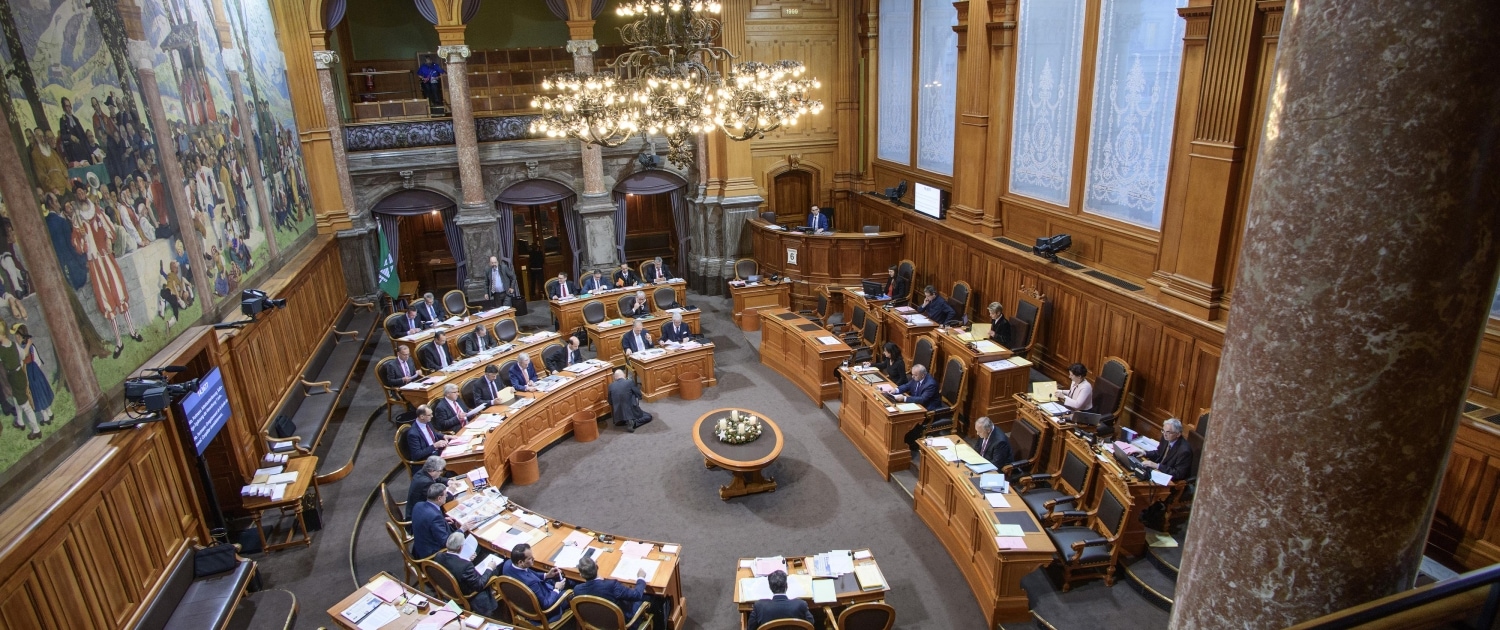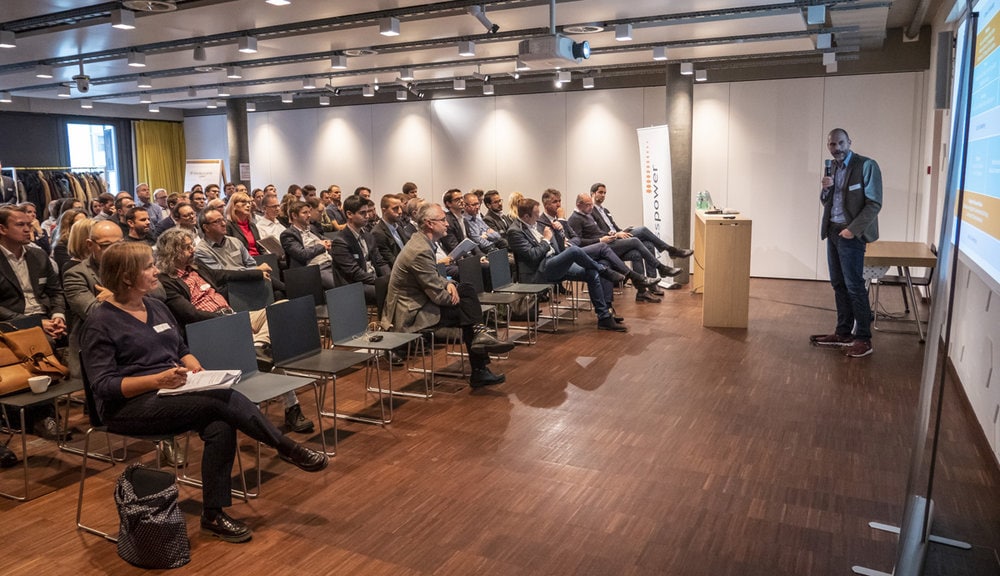Seit Ende 2018 ist in der EU die Neufassung der Erneuerbaren-Richtlinie in Kraft. Diese muss von den EU-Mitgliedstaaten und Staaten des Europäischen Wirtschaftsraumes (EWR) wie beispielweise Norwegen bis Mitte 2021 in nationales Recht umgesetzt werden. Darin enthalten ist im Strombereich die Nichtanerkennung von Herkunftsnachweisen (HKN) aus Drittstaaten ohne Abkommen mit der EU. Ohne Stromabkommen kann die Schweiz daher ab Mitte 2021 keine HKN mehr ins europäische Ausland exportieren. Weiterlesen
Schlagwortarchiv für: Stromversorgungsgesetz
Regulatorische Spielräume für Innovation in der Schweizer Energiewirtschaft
Innovation und insbesondere digitale Innovation benötigt Raum zum Atmen. Die Energiewirtschaft umfasst ein Geflecht an regulatorischen Vorgaben, welche ihre Berechtigung haben, aber gleichzeitig Innovatoren und gerade branchenfremde Start-ups abschrecken können. Gerade aber auf dem Weg zu einem dezentralen, dekarbonisierten und digitalen Energieversorgungssystem kommt der Innovation eine wichtige Rolle zu. Weiterlesen




 1 Vote(s), Durchschnitt: 1,00
1 Vote(s), Durchschnitt: 1,00Rückblick auf die letzte Parlamentssession des Jahrzehnts
In den letzten drei Wochen hat das Parlament ein letztes Mal in dieser Dekade über aktuelle politische Geschäfte beraten. Dabei wurden auch einige energiepolitische Themen diskutiert. Weiterlesen




 2 Vote(s), Durchschnitt: 3,50
2 Vote(s), Durchschnitt: 3,50In der Wintersession berät das Parlament erstmals in neuer Zusammensetzung über die aktuellen energiepolitischen Geschäfte. Vom 2. bis 20. Dezember 2019 stehen sechs Energiedossiers auf der Traktandenliste. Weiterlesen




 1 Vote(s), Durchschnitt: 4,00
1 Vote(s), Durchschnitt: 4,00Vergangene Woche organisierte Swisspower den Urban Blockchain Summit in Bern. Am Anlass, den das Bundesamt für Energie BFE unterstützte, fand eine Vielzahl von Workshops und Diskussionen statt zur Rolle der Distributed Ledger Technologie (DLT)/Blockchain im Energie- und Mobilitätssektor. Das Digital Innovation Office des BFE begleitete die Veranstaltung eng und stand unter anderem im Rahmen des Podiums zu Regulierung und Blockchain Rede und Antwort – keine einfache Übung bei einem derartig komplexen und dynamischen Thema. Weiterlesen




 Noch keine Bewertungen
Noch keine BewertungenNeues Buch erschienen: Wie wird die Digitalisierung die Energieversorgung verändern?
New book published: How will digitization change the energy supply?
The book “ Realization Utility 4.0 “ has just been published by Springer Verlag . Cross-industry experts present where and how digitization will change the energy supply system or where it is already doing so. Topics such as intelligent measuring systems (smart meters), energy data management systems, OpenData, DataScience, data hubs, flexibility and blockchain are explained in a practical and application-oriented manner and perspectives are shown. The book may be considered one of the most comprehensive basic reports on the subject of digitization, energy and decarbonization, since it really depicts all links in the value chain and provides strategic impulses.
Together with well-known industry experts, I was able to contribute to the Swiss energy landscape, which is perhaps still somewhat unknown on the «digital floor». It was important to me to draw as broad a view as possible of the current energy and electricity landscape in Switzerland so that readers with a good foundation can enter into the further, not entirely trivial discussion about the role of digital platforms, OpenData and data hubs in the energy sector. Simplified conclusion: It will take a lot more data and simple, platform-based access to this data, which is also accessible to machines. This can be used to advance innovations and clever digital solutions. So platforms and data hubs are at the center of my book contribution. He shows, how they will support the electricity market and thus innovation as well as the use of flexibility in future SmartGrids and SmartMarkets. There is still a lot to do here, especially in the energy sector.
Fortunately, the potential of digitization, data and data hubs is slowly being recognized by the energy industry and other stakeholders – this is shown in the consultation report on the revision of the Electricity Supply Act (StromVG) and the statements on the subjects of data, data exchange, metrology and data hubs. It is therefore not surprising that Ms Sommaruga mentioned at the media conference on the revision of the Electricity Supply Act that measurement technology and data hubs – and thus digitization in a broader sense – should be examined more closely. I am happy to be able to push these topics forward in the BFE’s Digital Innovation Office, because the BFE finally has the dialog paper on digitization in the energy sector important impulses for the further material discussion in Switzerland.
Matthias Galus, Head of Digital Innovation Office, SFOE




 Noch keine Bewertungen
Noch keine BewertungenAm 17. Oktober 2018 hat der Bundesrat die Vernehmlassung zur Revision des Stromversorgungsgesetzes eröffnet. Wozu braucht es eine Anpassung dieses Gesetzes? Und was soll sich dabei genau ändern? Im Folgenden eine kurze Übersicht zu diesen Fragen. Weiterlesen




 3 Vote(s), Durchschnitt: 4,33
3 Vote(s), Durchschnitt: 4,33Nationaler Datahub: Ein zentraler Baustein der Digitalisierung für einen effizienten Strommarkt
Die Digitalisierung beeinflusst immer mehr Prozesse und Wirtschaftssektoren, auch die Stromversorgung. Ein wichtiger, erster Schritt in diese Richtung ist die Einführung intelligenter Messsysteme in der Schweiz: Bis Ende 2027 werden 80% aller Messeinrichtungen in einem Netzgebiet auf Smart Meter umgerüstet. Doch wie können die erfassten Daten im Strommarkt effizient ausgetauscht werden? Aufschluss darüber gibt die im Auftrag des Bundesamts für Energie (BFE) erstellte Studie «Datahub Schweiz: Kosten-Nutzen-Analyse und regulatorischer Handlungsbedarf».




 3 Vote(s), Durchschnitt: 5,00
3 Vote(s), Durchschnitt: 5,00Kontakt
Bundesamt für Energie
Pulverstrasse 13
3063 Ittigen
Postadresse:
Bundesamt für Energie
3003 Bern
Telefonnummern:
Hauszentrale +41 58 462 56 11
Pressestelle +41 58 460 81 52
 Shutterstock
Shutterstock IStock
IStock Shutterstock
Shutterstock
 Swisspower
Swisspower Shutterstock
Shutterstock AdobeStock
AdobeStock Shutterstock
Shutterstock